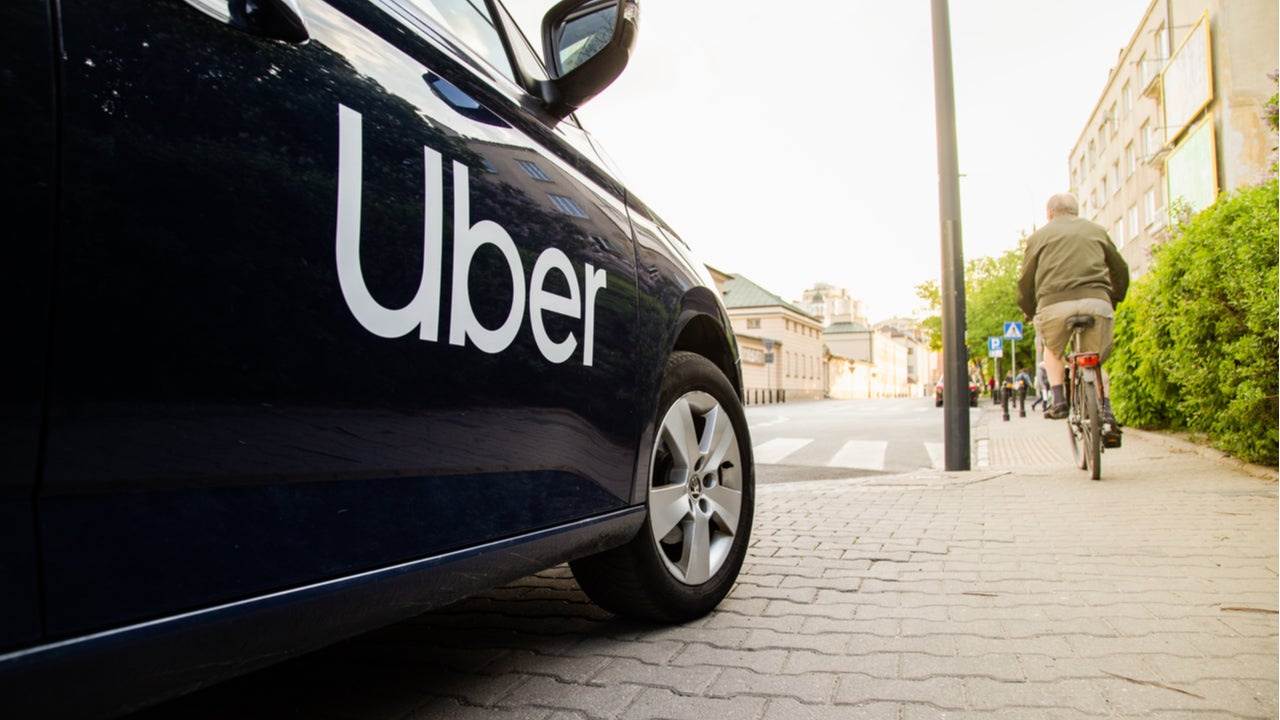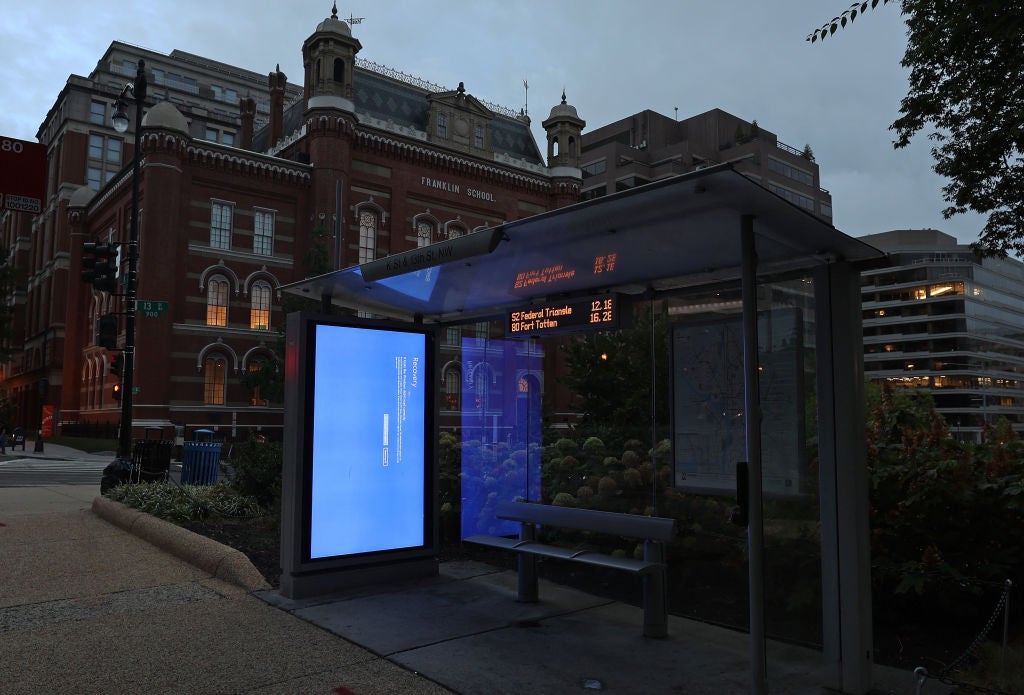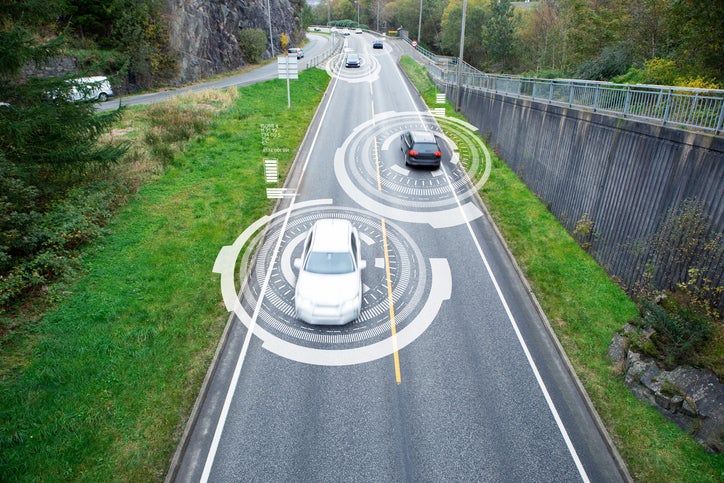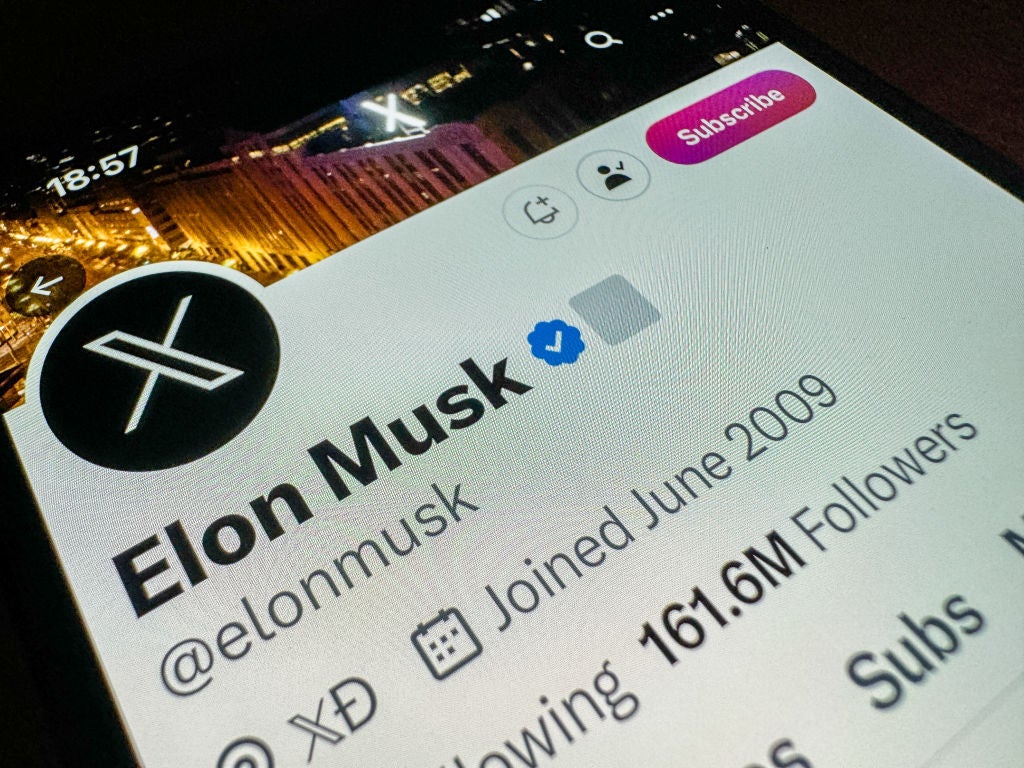
Ride-hailing app Uber must classify its UK drivers as workers rather than self-employed after losing a landmark case in the Supreme Court. For Uber’s drivers, it means they are entitled to minimum wage and paid holiday. For Uber, it is the latest threat to its already precarious business model.
The decision traces its origins back to October 2016 when former Uber drivers James Farrar and Yaseen Aslam won an employment tribunal case against the US company.
The pair successfully argued that the conditions attached to using Uber’s app meant they could not be classified as self-employed and therefore they were legally entitled to the same rights as workers.
Aware of the financial cost of reclassifying its then 40,000 drivers, Uber appealed the decision through the courts three times. At each turn, the courts sided with the former drivers, leaving the Supreme Court as the Silicon Valley firm’s final recourse.
Today, Uber ran out of road as six justices handed down a unanimous decision backing the original outcome of the 2016 Employment Tribunal case.
The court said that because Uber sets the fare, contract terms, as well as monitors drivers and penalises them for rejecting too many rides, the drivers were in a “position of subordination and dependency to Uber”.
How well do you really know your competitors?
Access the most comprehensive Company Profiles on the market, powered by GlobalData. Save hours of research. Gain competitive edge.

Thank you!
Your download email will arrive shortly
Not ready to buy yet? Download a free sample
We are confident about the unique quality of our Company Profiles. However, we want you to make the most beneficial decision for your business, so we offer a free sample that you can download by submitting the below form
By GlobalDataUber now faces short and long-term repercussions for its business model. The case is also likely to have ripple effects throughout the wider gig economy, which has come under increasing scrutiny in recent years as the model has been adopted by tech firms such as Deliveroo and others.
“Going forwards, it’s going to be a lot more costly for Uber to engage drivers in the future, as well as an increased administrative burden,” says Christopher Hitchins, employment partner at Katten Muchin Rosenman LLP.
Short-term impact
The Supreme Court’s decision does not mean Uber will immediately incur additional costs for all of its 60,000 drivers. But Uber will have to pay compensation to the 25 drivers involved in the case, with the amount to be determined by an employment tribunal over the coming months.
Uber could also face a hefty tax bill. The company previously warned that HM Revenue & Customs would reclassify it as a transport provider if forced to reclassify its drivers as workers, making it liable for VAT on fares.
“It is a landmark ruling for Uber, whose costs will now go up and who will have to rethink its business model in the UK,” says Joep Cornelissen, professor of corporate communication and management at the Rotterdam School of Management Erasmus University Rotterdam.
“[Uber] may also be liable to tax payments for its workers and employees, which will be the next set of court proceedings.”
The decision could also trigger a tsunami of additional cases against Uber from its drivers. Law firm Leigh Day is representing more than 2,000 Uber drivers with links to the case and has said they could be owed up to £12,000 each in back payments.
“The financial impact on Uber will be huge as nearly 60,000 drivers will be able to claim entitlement to worker rights against their full working time,” says Bénédicte Viort de La Batie, an employment lawyer at Browne Jacobson.
Responding to the Supreme Court’s decision, Uber has been keen to stress that it only applies to a small number of workers.
“We respect the court’s decision which focused on a small number of drivers who used the Uber app in 2016,” said Jamie Heywood, Uber’s regional general manager for northern and eastern Europe.
“Since then we have made some significant changes to our business, guided by drivers every step of the way. These include giving even more control over how they earn and providing new protections like free insurance in case of sickness or injury.
“We are committed to doing more and will now consult with every active driver across the UK to understand the changes they want to see.”
“According to the Supreme Court, the drivers’ working time includes any period when a driver is logged into the Uber app and is not limited to the time spent on accepted drives as Uber had argued.”
Another major blow for Uber is the Supreme Court’s ruling that a driver’s working hours include the time they are logged into the app, not just when carrying a passenger.
It could lead to Uber limiting the number of drivers in an area to keep costs down, a move that could mean fewer rides available for customers but a reduction in congestion and the pollution that comes with it.
Business model under threat
Uber has previously acknowledged the threat driver reclassification poses to its business model, starting in its 2019 filing with the US Securities and Exchange Commission that it would “incur significant additional expenses”.
It added that “any such reclassification would require us to fundamentally change our business model, and consequently have an adverse effect on our business and financial condition”.
The decision is even more crippling for Uber given the company is yet to turn an annual profit since it launched in 2009.
And this was before Covid-19 decimated Uber’s ride-hailing revenues, with the company’s 2020 revenue declining by 14% year on year.
Despite the number of trips declining, cost-cutting measures by Uber ensured the company continued to narrow its losses from $8.5bn in 2019 to $6.77bn in 2020.
Uber has successfully fought off similar challenges to its business model in the US, with Californians rejecting Proposition 22, a ballot measure that exempts ride-hailing firms from classifying their drivers as employees, in November 2020.
Then, Uber and rival Lyft threatened to pull out of the market if the measures came to pass. A 2019 analysis by Barclays said the reclassifying California Uber drivers would add an additional $725m in costs.
The UK market is much smaller than the US, but the Supreme Court decision could add a sizeable bill to its already struggling balance sheet. Should the costs prove too high for Uber, it may have to reassess its business model – or perhaps pull out of the UK market.
Uber Supreme Court loss will have ramifications for gig economy
While the Supreme Court’s decision does not have any direct bearing on the rights of gig economy workers at other companies, it may prove to be a lightning rod for other legal action.
“Clearly there is symbolic importance to a case where one of the figureheads of the gig economy loses a case, which goes to the heart of its business model, four times in a row,” says Charlie Thompson, employment lawyer at Stewarts.
“At each stage Uber claimed that its business model merely provided a platform to self-employed drivers, and each time court dismissed this as artifice.”
The European Commission is exploring ways to classify gig economy workers and courts in Spain, Belgium, France, Italy and the Netherlands have all independently made moves to reclassify gig workers.
“If employment contracts are mandated in Spain then, of course, that would have a significant impact on us and the entire on-demand delivery economy,” Sacha Michaud, co-founder of Spanish on-demand courier app startup Glovo tells Verdict.
“However, for us, the situation is less about economics and more about operations because the vast majority of our couriers favour flexible, autonomous work as well as being able to support vast changes in order volumes during peak times.
“We believe that the digital economy and autonomous work needs to be regulated — we welcome that because it brings with it the best possible rights for workers and those are costs we’re willing to cover. The focus of regulators, we believe, should be on how to make the gig economy more inclusive and sustainable, rather than reclassification.”
The crushing nature of Uber’s defeat may spark action in other countries and could even cause a complete rethink in how companies approach gig economy business models.
“Beyond the financial impact for Uber, this decision will force some major businesses in the gig economy to reassess their model against the reality of the relationship with the individuals providing the services offered,” says Viort de La Batie,
Read more: Uber will consider accepting bitcoin, says CEO Dara Khosrowshahi







